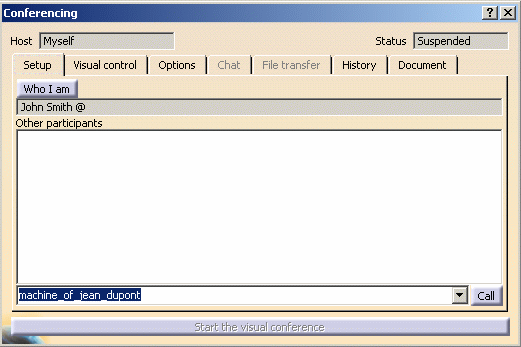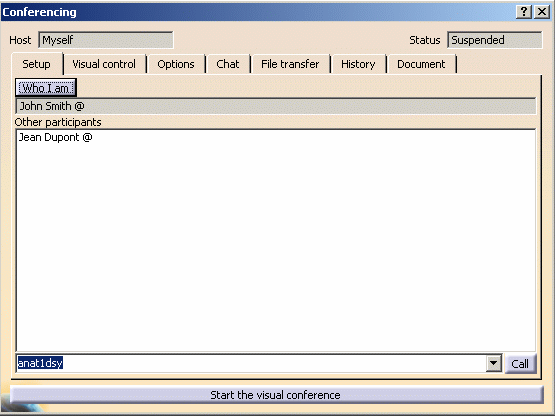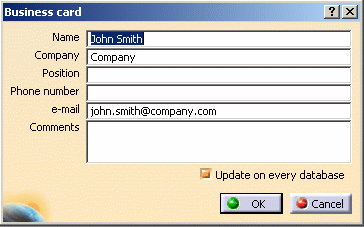Launching a Conference as Host
|
|
The person who launches a conference is
considered to be the conference host. The host, and only the host, can do
the following:
|
|
|
You must have a DMU Navigator session
running.
You must have properly initialized the conferencing infrastructure. See: |
|
|
Each participant of the conference must have
access privileges to all data that he will visualize and he must load the
data manually. Information about which documents are open in the Host
session is provided to all participants on the Document page. The actions replicated during a conference are the following:
It is now possible to use the F3 key to toggle the visibility of the
specification tree. the coherence of which is maintained for all member
sessions of the conference. |
|
|
|
|
|
|
|
If you are using NetMeeting as driver, the
NetMeeting dialog box will also appear.
If the NetMeeting interface is
already on the desktop, you can use it to host a conference by selecting
the Call/Host Meeting menu item,
and then connecting to that conference by selecting
Tools->Conferencing->Host
from the menu bar. |
|
|
As much as NetMeeting functionality would
enable you to perform some of the conferencing actions, they will not be
described in this documentation.
Note, however, that even if you manage the conference completely from the Conferencing dialog box, you must leave the NetMeeting dialog box opened as it is serving as the conference driver. |
|
|
|
|
| As
soon as the conference is organized (i.e. at least 2 members connected),
the Visual Control page is accessible.
The conference is suspended.
Everybody can continue working, opening documents, annotating documents,
etc. |
|
|
|
Starting the Visual Conference
|
|
Suspending the Visual Conference
|
|
|
|
|



